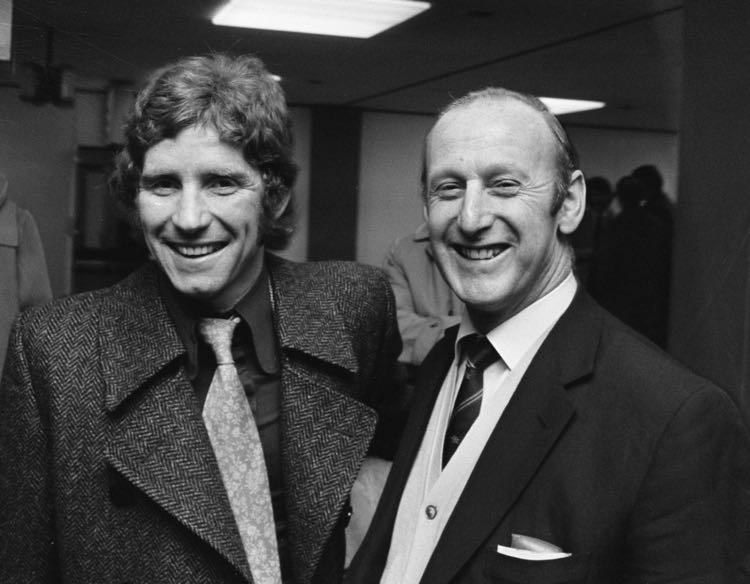In recent years, being an Arsenal fan has not been a particularly joyous experience. Although there was the FA Cup triumph in 2020, the post-Wenger era (and indeed the final years when the Frenchman was at the helm) have been largely full of disappointment. This is especially true of league finishes as the Gunners ended up in fifth place at the end of the 2021/22 campaign, making it six successive seasons finishing outside of the coveted top four.
It can be easy to forget, therefore, that Arsenal are still comfortably one of the most successful teams in English football history. Not only do they rank third in the list of most major honours (31), behind Liverpool and Manchester United but they hold the joint record for the most doubles. It cannot be underestimated how challenging the double is either because as of 2022, it had only been achieved 12 times in English football history.
What Is the Double?

‘The Double’ is a term used a fair amount in footballing circles. It can be (and often is) applied when a team has beaten another side both home and away in the league during the same season. This would be referred to as ‘doing the double’ over them. While the six points from one team are always welcome, this is of no great historic significance, so these doubles will not be noted down in the record books. Of course, for Arsenal to do the double over north London rivals Tottenham Hotspur is certainly relished by the Gunners fans, but it’s not what we’re referring to here.
Two Trophies in One Season
A double can also refer to winning two trophies in the same season. For a traditional double this includes the nation’s primary domestic cup competition and its top league. In the case of English football therefore this would be the Premier League and the FA Cup. The concept is far from limited to England though so you will find references to this kind of double all over the footballing world.
It is this pair of trophies which forms ‘The Double’ itself so if you see just this term and this alone, this is what it should refer to. Of course, it is possible for teams to win a different couple of trophies, but these doubles should go by a different name. Winning the top-flight league and Champions League for example is known as the continental double. Many countries also operate with a league cup (like the EFL Cup in England), creating the possibility of a league/League Cup double or, in England, the FA Cup/EFL Cup double. We will not be looking at any of these alternatives here though. Instead we will focus only on times that Arsenal have won the ‘proper’ double: the FA Cup and England’s top division.
Arsenal’s Double Success

With FA Cup winners Liverpool narrowly failing to win the league in the 2021/22 season, this meant by the end of the campaign the number total of successful doubles remained at 12. On average, this works out at less than one double per decade given that the double has been a possibility since the foundation of the English Football League in 1888.
In this very long time, only two clubs have managed to pull off the double on three occasions: Manchester United (including one treble) and Arsenal. So, without further ado, let’s look at each occasion the Gunners accomplished this mighty footballing feat.
1970/71
- Manager – Bertie Mee
- League Points – 65 (two points for a win)
- Top Goalscorer (League) – Ray Kennedy with 26
- Team Defeated in FA Cup Final – Liverpool
It must have been quite painful for Arsenal supporters to see arch-rivals Tottenham become the first team in over 60 years to complete the double. Bill Nicholson’s men managed what so many teams had tried and failed as he successfully lifted the big two English trophies during the 1960/61 season. The Arsenal faithful were not left to feel envious for too long though, in the grand scheme of things, as their club matched their rival’s achievement one decade later.
As something that had only been managed once before in the 20th century, it was never going to be easy and that proved to be the case for the Gunners. In the First Division they beat Leeds United to first place by a solitary point. At this time the final round of league fixtures was not played simultaneously. Leeds had already played their final match before Arsenal took on rivals Tottenham at White Hart Lane. This meant the Gunners knew any win would do the job, as would a goalless draw due to their narrow advantage on goal average (tiebreaker that calculated goals scored divided by goals conceded).
It proved to be an extremely nervy encounter in north London as Arsenal’s 1-0 lead, handed to them thanks to top scorer Ray Kennedy, was extremely fragile. There would be no late drama for Bertie Mee’s men though, but there was plenty of it in the FA Cup. The Gunners were on the brink of semi-final elimination but a 90th-minute Peter Storey penalty earned them a replay which they subsequently won. This set up a final clash with Liverpool that headed into extra-time following a goalless 90 minutes. The Merseysiders struck first but goals from Eddie Kelly and Charlie George in the space of 10 minutes completed a dramatic turnaround.
1997/98
- Manager – Arsène Wenger
- League Points – 78 (three points for a win)
- Top Goalscorer (League) – Dennis Bergkamp with 22
- Team Defeated in FA Cup Final – Newcastle United
Arsenal’s first double win involved them claiming a league title thanks to a one-point advantage and the same happened in 1997/98. Despite having an inferior goal difference over second-place Manchester United though, this league campaign did not go down to the wire. A run of 10 consecutive wins saw Arsenal clinch the title with two matches to spare. With nothing to play for after this, the Gunners lost their two final matches, allowing United to close the gap by six points, making the race seem a little closer than it actually was.
For all their impressive exploits in the league though, Arsenal looked a little more susceptible in the FA Cup. In the first round they drew twice against fellow First Division side Port Value and subsequently needed penalties to prevail. In the fifth round, a replay was needed to beat Crystal Palace after an initial goalless draw at Highbury. There was yet another rematch too in the sixth round and this saw a 10-man Arsenal cling onto another drew, forcing the match into a penalty shootout.
Ironically, the final ended up being Arsenal’s ‘easiest’ match of the lot, at least in regards to the scoreline. Wenger’s men ran out 2-0 winners at Wembley thanks to efforts from Marc Overmars and Nicholas Anelka. This two-goal margin of victory was the biggest the north Londoners managed during this successful FA Cup run.
2001/02
- Manager – Arsène Wenger
- League Points – 87 (three points for a win)
- Top Goalscorer (League) – Thierry Henry with 32
- Team Defeated in FA Cup Final – Chelsea
Arsenal’s third Double win was another masterminded by Frenchman Arsène Wenger. In doing so he became only the second manager in English football history to manage the feat more than once. His team were worthy winners in the Premier League, topping the table by seven points and registering the best goal difference. This was only possible thanks to a stunning ending to the campaign, one which saw the north Londoners win their last 12 league matches on the bounce.
As for their successful FA Cup run during this season, Arsenal only needed the one replay on their route to the final when drawing with Newcastle 1-1 in the sixth round. A Gianluca Festa own goal made the difference in the semi-final clash with Middlesbrough, setting up an all-London final with rivals Chelsea. It was the Blues that looked the most likely to break the deadlock in the second half, only for Ray Parlour to curl one in from 25 yards in the 70th minute. Freddie Ljungberg then virtually sealed the win 10 minutes later with another strike from outside the box. It proved to be Arsenal’s eighth win in the competition, putting them on equal terms with neighbours Tottenham.

